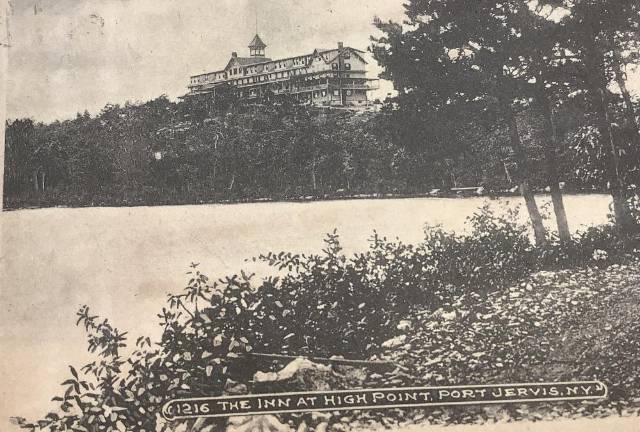Sussex County History Today: 100 Years of High Point State Park

I am very pleased to have a guest historian this week: Vernon’s own greatly respected, and a personal friend, Ron Dupont.
2023 is barely gone, but it was the centennial of an important piece of New Jersey history.
America has a wonderful network of state parks and forests, and one of the granddaddies of them all is right here in Sussex County: High Point State Park, dedicated Memorial Day 1923.
Stretching along the Kittatinny Mountains for six miles from the state line south toward Deckertown Turnpike, High Point boasts 16,000 acres and - no surprise - the highest point in New Jersey.
The Kittatinnies here were once the Sussex Allotments, giant thousand-acre blocks of land set aside by the East Jersey Proprietors in the 1700s.
In the 1800s, the land was slowly taken up by hardscrabble mountain farms, the hills crisscrossed by mountain turnpikes and wagon roads.
It wasn’t until the 1850s that a state geologist ascertained that the highest point in New Jersey was here at 1,803 feet. There was a small lake right near the high point, and he named it after his fiance: Lake Marcia.
The mountains saw farming, lumbering and the occasional quarry or sawmill. But soon, the area was valued for another resource: scenery. Local folks came up to the mountains to hunt and fish and picnic, enjoying the grand views from the high point and other spots.
In 1890, that scenery became big business, when Port Jervis, N.Y., newspaper publisher Charles St. John bought 1,500 acres here and built the High Point Inn, a sprawling mountain resort catering to the era’s travelers.
It was a success for nearly 20 years until a series of wildfires, along with hard economic times, forced its closure.
In 1910, it was sold to twin brothers from Bernardsville who had numerous business enterprises. Their names were John and Anthony Kuser.
The Kusers initially planned to develop the property along the lines of Tuxedo Park, N.Y., a high-end summer resort. This changed when Anthony Kuser’s wife and her family took an interest in the property.
Mrs. Kuser was the former Susie Dryden, daughter of Republican U.S. Sen. John F. Dryden. He founded a little firm you may have heard of: the Prudential Insurance Co.
Sen. Dryden, worth about $50 million, took a fancy to the Kittatinnies and started buying some 10,000 acres of land near High Point with the intent of preserving it for posterity.
Why was an insurance magnate suddenly interested in land conservation?
As it happens, in running for Senate in 1902, Dryden had faced off against a young progressive Republican. He held off that challenge, but the two remained political adversaries thereafter.
Dryden’s progressive opponent was elected New Jersey governor in 1905, which likely irked the senator. In his new executive capacity, the progressive governor created a Department of Conservation, which built a system of state forests. In gratitude for his efforts, after he left office, the state named one of the new state forests in his honor. His name (if you haven’t already guessed) was Edward Caspar Stokes, namesake of Stokes State Forest
With the state forest immediately south of the Kuser/Dryden High Point estate named in honor of one of the senator’s fiercest rivals, well, I have to imagine it engendered some one-upmanship in Dryden. Whatever his motivation, he created his own nature preserve. And development plans were shelved.
The Kuser brothers had started remodeling the old High Point Inn as a clubhouse for their planned development. Instead, the large Colonial Revival mansion that resulted became their summer getaway: Kuser Mansion. Anthony Kuser enclosed part of the property with a tall fence and raised elk and reindeer.
However, only a few years after creating their sprawling mountain estate, there was trouble. According to Kuser family tradition, Mrs. Kuser went out of the mansion to where their car was parked one fine summer day and discovered a big timber rattlesnake basking in the sun in front of it.
She marched inside and said to her husband that she could not stay at the place any longer. There were snakes.
What should Col. Kuser do with the place now - use it as a gigantic weekend poker shack, maybe?
Mrs. Kuser stated that in her opinion, fulfilling her late father’s wishes, it would make a wonderful public park.
And so the idea was born.
Bill Truran, Sussex County’s historian, may be contacted at wrt1@columbia.edu